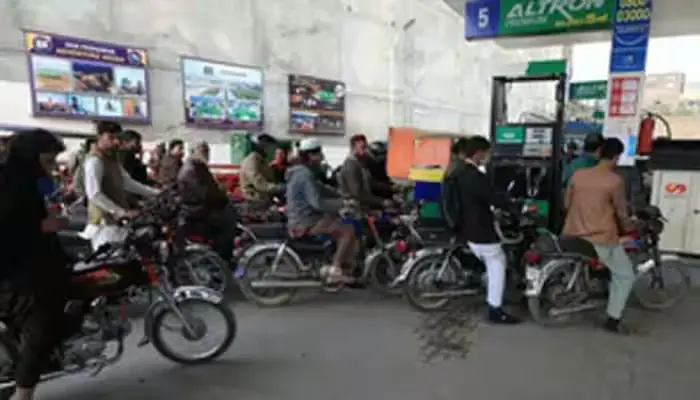
The government has raised fuel prices, with petrol prices increasing by Rs3.47 per litre and high-speed diesel (HSD) by Rs2.61 per litre for the next fortnight. The new rates set petrol at Rs256.13 per litre and HSD at Rs260.95 per litre. This hike comes in response to international market fluctuations over the last two weeks, as reported by the Finance Division.
International Market Impact
The Oil and Gas Regulatory Authority (OGRA) calculated the new consumer prices following recent global oil market trends. International crude prices rose due to geopolitical tensions, including threats of stricter sanctions on Russian oil exports. Brent crude prices climbed by $1-2 per barrel during this period, contributing to the increase in local fuel costs.
Kerosene and light diesel oil prices were not explicitly addressed in the announcement. However, informed sources earlier predicted an increase of Rs3 per litre for kerosene and Rs2 per litre for light diesel oil.
Petrol and Diesel Use in Pakistan
Petrol, widely used in private transport, motorcycles, and rickshaws, directly impacts the budgets of the middle and lower-income segments. HSD, on the other hand, powers heavy transport vehicles, trains, and agricultural machinery, making its price highly inflationary. Increases in HSD prices often lead to higher transportation and production costs, further inflating food and essential goods prices.
Read: Pakistan Rejects Indian Army Chief’s “Epicentre of Terrorism” Claim
Breakdown of Fuel Charges
The government’s taxation on petroleum products adds significantly to consumer costs. Approximately Rs76 per litre in taxes is levied on both petrol and HSD. Although the general sales tax (GST) on petroleum products remains zero, the government imposes a petroleum development levy of Rs60 per litre. Additionally, customs duties of Rs16 per litre are applied, regardless of local production or imports. Oil companies and dealers charge Rs17 per litre in distribution and sale margins.
For high-octane blending components and 95RON petrol, typically used in luxury vehicles, the government charges Rs50 per litre, reflecting higher costs for premium fuel users.
Economic Ripple Effects
The increase in petrol and diesel prices is likely to exert pressure on inflation, affecting both transportation costs and the prices of essential commodities. The agricultural sector, reliant on diesel for machinery such as tractors, tube wells, and threshers, will also bear higher operational expenses. These changes could significantly impact the cost of vegetables and other food items, burdening consumers further.
Future Outlook
The recent hikes underline Pakistan’s vulnerability to global oil market trends. While the government has sought to maintain a stable exchange rate and minimize import premiums, external factors like geopolitical shifts continue to drive domestic fuel prices upward. Stakeholders and policymakers must address these challenges to mitigate the impact on citizens and stabilize economic conditions.
Fuel price adjustments are expected to remain a critical issue, influencing broader economic dynamics and affecting millions of households reliant on affordable transportation and agricultural production.
Follow us on Google News, Instagram, YouTube, Facebook,Whats App, and TikTok for latest updates
